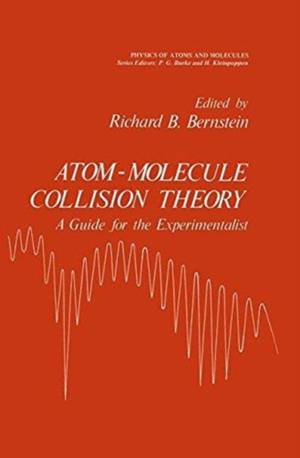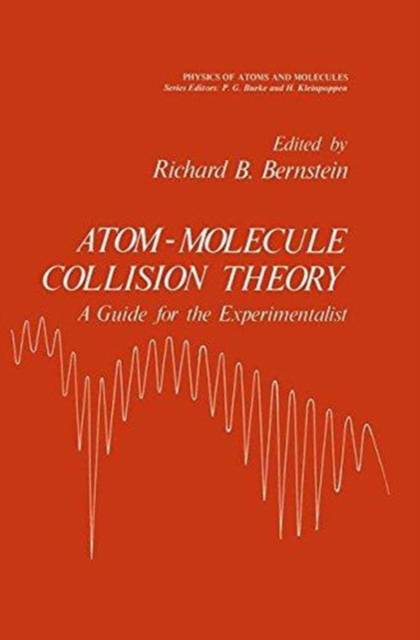
- Afhalen na 1 uur in een winkel met voorraad
- Gratis thuislevering in België vanaf € 30
- Ruim aanbod met 7 miljoen producten
- Afhalen na 1 uur in een winkel met voorraad
- Gratis thuislevering in België vanaf € 30
- Ruim aanbod met 7 miljoen producten
Zoeken
Atom - Molecule Collision Theory
A Guide for the Experimentalist
€ 139,95
+ 279 punten
Omschrijving
The broad field of molecular collisions is one of considerable current interest, one in which there is a great deal of research activity, both experi- mental and theoretical. This is probably because elastic, inelastic, and reactive intermolecular collisions are of central importance in many of the fundamental processes of chemistry and physics. One small area of this field, namely atom-molecule collisions, is now beginning to be "understood" from first principles. Although the more general subject of the collisions of polyatomic molecules is of great im- portance and intrinsic interest, it is still too complex from the viewpoint of theoretical understanding. However, for atoms and simple molecules the essential theory is well developed, and computational methods are sufficiently advanced that calculations can now be favorably compared with experimental results. This "coming together" of the subject (and, incidentally, of physicists and chemists !), though still in an early stage, signals that the time is ripe for an appraisal and review of the theoretical basis of atom-molecule collisions. It is especially important for the experimentalist in the field to have a working knowledge of the theory and computational methods required to describe the experimentally observable behavior of the system. By now many of the alternative theoretical approaches and computational procedures have been tested and intercompared. More-or-Iess optimal methods for dealing with each aspect are emerging. In many cases working equations, even schematic algorithms, have been developed, with assumptions and caveats delineated.
Specificaties
Betrokkenen
- Uitgeverij:
Inhoud
- Aantal bladzijden:
- 779
- Taal:
- Engels
- Reeks:
Eigenschappen
- Productcode (EAN):
- 9780306401213
- Verschijningsdatum:
- 1/06/1979
- Uitvoering:
- Hardcover
- Formaat:
- Genaaid
- Gewicht:
- 1249 g

Alleen bij Standaard Boekhandel
+ 279 punten op je klantenkaart van Standaard Boekhandel
Beoordelingen
We publiceren alleen reviews die voldoen aan de voorwaarden voor reviews. Bekijk onze voorwaarden voor reviews.










